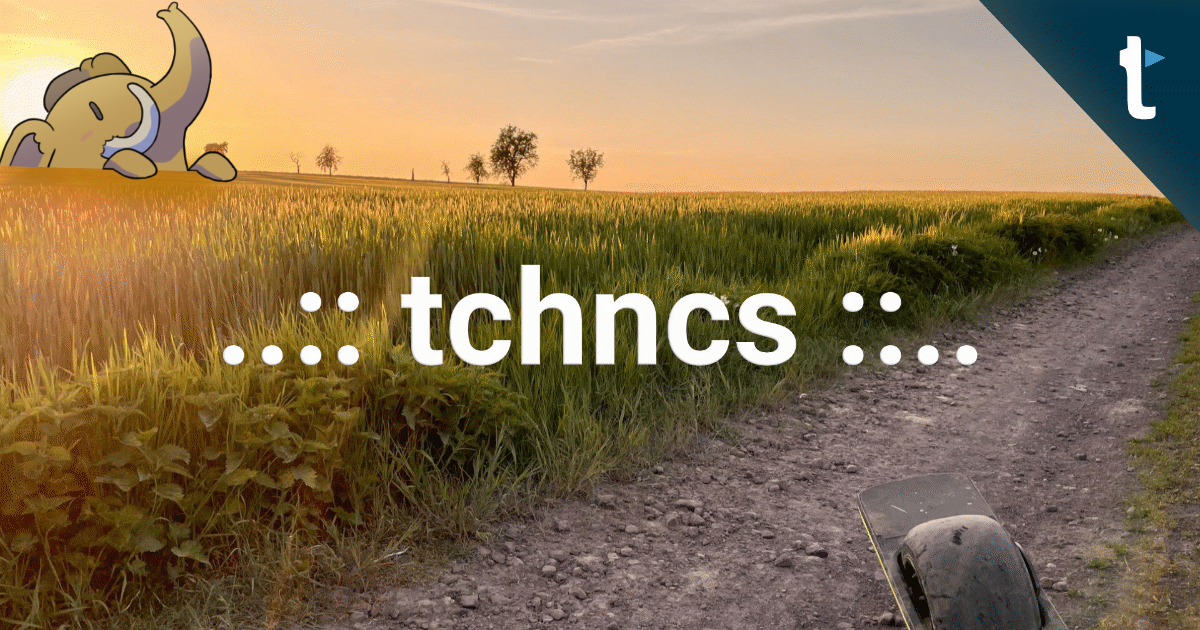Recent searches
Search options
#sparql
@urfistlyon L'occasion de tester le point de terminaison #SPARQL proposé par le Prix Nobel https://data.nobelprize.org/sparql
Data Competence Centers, #RDM networking organizations, data libraries on #wikidata #SPARQL
#DataCompetence #Datenkompetenzzentrum
and the code: https://w.wiki/DexZ
Comments are very welcome. Abridged code due to lack of space.
The Model Context Protocol acts as a universal translator between LLMs and data sources, eliminating complex platform-specific requirements. Our new open source MCP server for ODBC (mcp-odbc-server) enables seamless integration of any ODBC-accessible data into RAG pipelines.
Read more in my latest newsletter!
https://www.linkedin.com/pulse/whats-model-context-protocol-why-important-kingsley-uyi-idehen-zy8ue
TIL: Eine #SPARQL Abfrage in #Wikidata nach aufsteigender #QID zu sortieren ist etwas mehr, als in https://www.wikidata.org/wiki/Wikidata:SPARQL_query_service/queries/examples beschrieben. Statt bloß "ORDER BY ?horse" muss man schon zu "ORDER BY (xsd:long(STRAFTER(STR(?horse),"Q")))" greifen.
We’re excited to introduce the latest Virtuoso Maintenance Release—Virtuoso 08.03.3333—packed with feature enhancements and bug fixes across the platform.
https://community.openlinksw.com/t/virtuoso-08-03-3333-release-notes/4872
Voilà mes interventions d'ici la fin (et un peu au delà) de ma dernière résidence #Wikimédia au sein d'une #URFIST. https://fr.wikipedia.org/wiki/Projet:Wikifier_la_science/Nice #Wikipedia #SPARQL #OpenRefine #Wikidata #WikiCommons #LicenceLibre
Looking for some #SPARQL help, as I'm a newbie to this and my mental model of how triple stores work is incomplete.
I have two versions of the same set of terms in two Turtle files, and I want to load them up into a triple store and then compare them to see what changed: terms updated, added or deleted.
I just figured out that combing markerclusters with layers in #SPARQL queries visualising results from #Wikidata on maps can give you a nice coloured classification of periodicals by publishing language.
Unfortunately the query is too long for posting it here ...
Update: created a gist for this query at https://gist.github.com/tillgrallert/3999b5da1616107a483221bc04a420c2
I would like to write a query to find, given a parent taxon, the closest child taxa with a specific identifier, such that the resulting set of identifiers is the smallest to cover all species of the parent taxon. I tried the following but it times out (and OOMs on QLever). Any ideas?
At @swat4hcls there was a presentation by @albdrg that I really like: https://www.youtube.com/watch?v=F4Nl-nmLZA4 This uses #SPARQL to combine data in a privacy aware #beacons-api and combine it with public #knowledgegraph like #uniprot by @SIB and #wikidata @wikidata to reduce cost of the data integration challenge required to answer clinical question.
Ongoing discussions on the #dblp #SPARQL Query Service at Github Discussions:
"Unable To Get Titles For Some Entities"
https://github.com/dblp/kg/discussions/6
Voir aussi les #dataviz des requêtes #Sparql de l'identifiant #FranceArchives sur #Wikidata : https://patrimoine-et-numerique.fr/data-visualisations/83-des-gens-dans-les-archives-a-propos-de-l-identifiant-francearchives-agent-sur-wikidata#femmes-proportion
Je suis particulièrement fan (et fière) de celle sur les lieux de naissance des femmes dans les archives, par siècle (poke @belett ) : https://w.wiki/7CgB
#archives #viedarchiviste #herstory #histoire #histodons #sourceshistoriques #inventaires #archivistodons #histodons #femmes #journeeinternationaledesdroitsdesfemmes #womeninhistory 2/
A #SPARQL-Request: This item https://database.factgrid.de/wiki/Item:Q1194835 has the official results of the recent German elections. You can run a query on it: https://tinyurl.com/24yzfcax - but how do you add the units? - much obliged, Olaf
#DHd2025 im #Slider : Über offenes Field Mapping können Forschende & Institutionen der #DigitalHumanities & #DigitalHistory in DACH mithilfe von #Wikidata & #SPARQL abgebildet werden:
This is a more user friendly SPARQL query editor with 111 example queries.
It offers three main features: (i) automatic query example rendering, (ii) precise autocomplete based on existing triple patterns including within SERVICE clauses, and (iii) a data-aware schema visualization.
https://sib-swiss.github.io/sparql-editor/
There is an arXiv article describing this tool at:
https://arxiv.org/abs/2503.02688
Bientôt 50 personnes pour mon introduction à #SPARQL le 17 mars ! #SNDU2025 https://urfistinfo.hypotheses.org/4604
Dear @dblp, we are very happy to see that you are deploying a QLever-based SPARQL endpoint. Would you probably mind to increase your cache size as this simple 2-hop query doesn't work:
SELECT ?p ?o ?pp ?oo WHERE {
<https://dblp.org/rec/books/acm/19/X19> ?p ?o .
OPTIONAL { ?o ?pp ?oo . }
}
https://sparql.dblp.org/n9kCi4
Thank you very much!! :)

